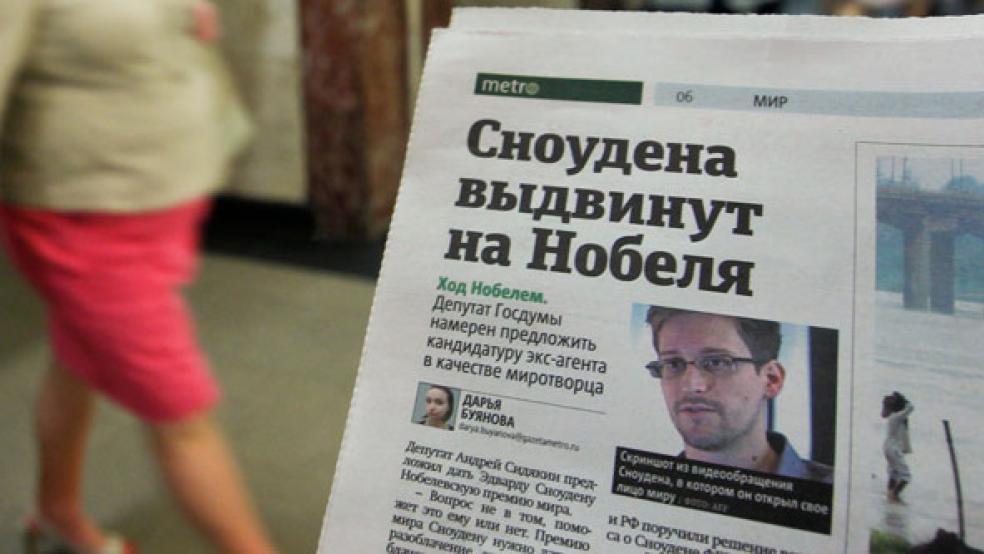Russian President Vladimir Putin is a fan of spectacle, whether it is military parades through Moscow or the 2014 Olympic games in Sochi. He believes these spectacles show off Russian power while positioning him as the man who wields it.
Today, NSA leaker Edward Snowden officially became part of the Putin spectacle.
Related: Pressure on Putin as Russian Wealth Disappears
During an appearance on Russian television in which viewers could call in questions to Putin, a video of Snowden appeared. Then Snowden, who was granted asylum by Russia last summer, tossed up a softball question about Russian surveillance techniques.
"Does Russia intercept, store or analyze in any way the communications of millions of individuals?" Snowden asked.
Putin’s response seemed to indicate that Snowden is more than the principled leaker that the hacker claims to be. Many critics have long suspected that Snowden was working with the Russians when he stole an intelligence treasure trove from the NSA. Putin’s comments did little to quiet those suspicions.
“You are a former agent, a spy. I used to work for an intelligence service [the KGB]. We are going to talk one professional language,” he said.
Related: Russia’s Move in Crimea Sends China a Dangerous Message
Putin then used the question as an excuse to lie about Russia’s surveillance of its own citizens.
“You have to get court permission to stalk a particular person. We don't have a mass system of such interception, and according to our law it cannot exist,” Putin said.
This statement is an outright lie, although coming from someone who until recently denied Russian troops are in Crimea, it’s not unexpected. Russia routinely collects data from Internet and cell phone servers using System of Operative-Investigative Measures, or SORM. It uses these intercepts to crack down on opposition groups, journalists who are critical of Putin, and just about anyone who opposes Putin and his cronies.
“Snowden would probably be interested to know that Russian laws allow the control, storage and study of all data in the communication networks of the Russian Federation,” the U.S. embassy in Moscow said in a Tweet after the interview was televised.
Related: How Putin Awoke NATO’s Sleeping Giant
The timing is also ironic, given that the Washington Post and the Guardian won Pulitzer Prizes for their coverage of the Snowden leaks.
“Snowden celebrates Pulitzer by turning into Putin’s propaganda tool,” former NSA general counsel Stewart Baker said in a Tweet.
The incident also cast aspersions on Snowden’s motives. He has longed claimed that he stole U.S. secrets to spark a debate about U.S. surveillance practices. But his playing a willing part in Russian propaganda suggests that he’s either completely naive about what goes on in his host country, or he’s a willing participant in it.
Top Reads from The Fiscal Times





